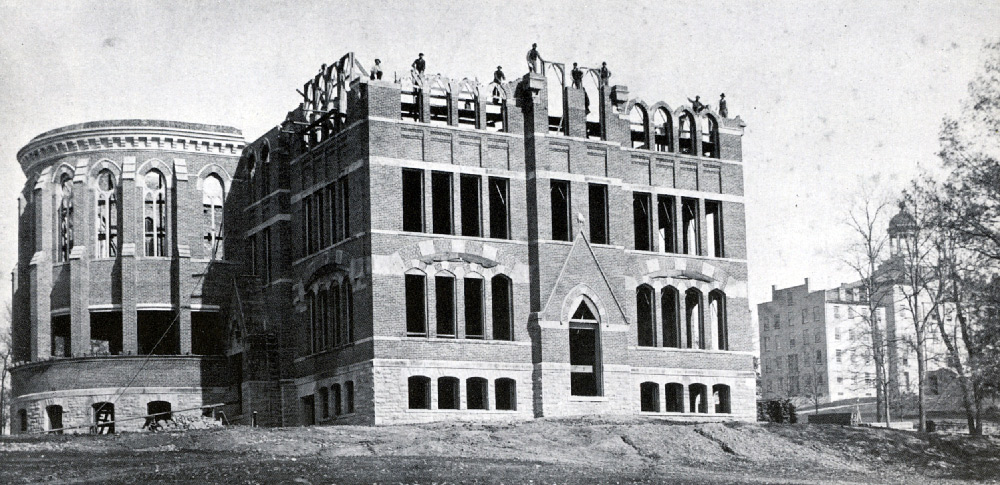
From Myers Hall to the Kissing Bridge to an age-old Commencement ritual, Wittenberg is immersed in tradition.
These traditions have been created by an inimitable history that began in 1845. Together, Wittenberg's history and traditions make the university the distinctive place it is today.
Founding
From its birth, Wittenberg has built and defended a vision of itself and its future, which has been clear and unconventional. The university was created by a group of pastors who broke with the German church and created the English Evangelical Lutheran Synod of Ohio. They believed that the English language was a way to foster the inclusiveness of the new American nation. In 1842, the new synod voted unanimously to establish a theological and literary institution that would serve the educational and cultural needs of new immigrants and new communities: Wittenberg University.
In its early years Wittenberg wavered on a permanent home. The first class sessions for the college were held in Wooster, Ohio. It wasn't until Ezra Keller, Wittenberg's founder and first president, stepped upon one of the highest points in south-central Ohio that Wittenberg would have a permanent place to lay its first cornerstone. Springfield was considered a boomtown in the mid-1800s and had many resources to offer the college. The city was conveniently located on the National Road and was easily accessed by travelers as they made their way through the Ohio Valley. The city was also a crossroads for rail shipping and received hundreds of trains each day, another benefit for a blossoming institution.
A Growing, Bright Future
Wittenberg's original focus was the training of Lutheran ministers. The Hamma Divinity School remained on campus until 1978. Wittenberg's earliest curriculum was rooted in the classics. Latin, Greek, moral philosophy, religion and mathematics were the primary focus of the college. In the 1880s Wittenberg began to integrate science into the curriculum. A sizable gift from Andrew Carnegie gave the college the ability to build its first science hall in 1908.
By the turn of the century, the pressures for curricular reform that were being experienced all across the country began to be felt at Wittenberg. Course selection, graduate work and new courses such as art, music and science were among the most significant modifications. At the turn of the century, Wittenberg enjoyed a prosperous year in which major gifts and outstanding faculty were easily attracted. Wittenberg attained a national perspective and found a place in the mainstream of American higher education. When the accreditation movement emerged, Wittenberg became one of the first Lutheran colleges to be fully accredited.
Wittenberg Today
Today, Wittenberg's greatest traditions continue - a commitment to academic excellence in a changing world that is focused on preparing students to thrive in their personal and professional lives. Further, what has become one of Wittenberg's finest and most prized tradition is the warm, friendly smile and "hello" from any Wittenberg student you pass. Situated on one of America's most beautiful campuses, Wittenberg unites faculty, staff and students to form a thriving community of discovery, growth and fun.

